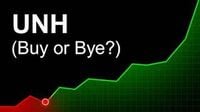UnitedHealth Group, the healthcare giant that touches nearly every corner of the U.S. medical system, has found itself at the center of market intrigue in August 2025. The company, trading on the NYSE under the ticker UNH, has weathered a storm of challenges this year—yet, as the dust settles, some of the world’s most prominent investors are quietly piling in, betting on a rebound that could reshape the narrative for years to come.
On August 24, 2025, Stock Traders Daily published a technical analysis that captured the current mood around UnitedHealth: mixed sentiment with a dash of optimism, but plenty of caution. The report described the market as “choppy,” with a mid-channel oscillation pattern suggesting that the stock could swing in either direction in the near term. Notably, the analysis highlighted an “exceptional 86.1:1 risk-reward setup,” targeting a potential 24.9% gain versus a mere 0.3% risk for bold investors willing to navigate the volatility. Key price signals were flagged at $226.34, $290.08, $307.42, and $362.43, with the current price hovering near $307.
Digging into the details, the multi-timeframe analysis painted a nuanced picture: in the near-term (1-5 days), signals were neutral, with support at $298.04 and resistance at $307.93. The mid-term (5-20 days) looked more promising, as a strong signal emerged, setting support at $308.90 and resistance at $332.30. But for those with a longer time horizon (20+ days), the signal weakened, with support at $290.08 and resistance at $362.43. In other words, while there’s room for optimism, investors should brace for bumps along the way.
Behind the scenes, UnitedHealth Group has been working overtime to steady the ship. According to Simply Wall St, Warren Buffett’s Berkshire Hathaway recently revealed a sizable new stake in the company, marking its return to the health insurance sector after a 14-year hiatus. The move, echoed by similarly bullish bets from David Tepper’s Appaloosa Management and Michael Burry’s Scion Asset Management, sent a clear message: the so-called "smart money" sees opportunity where others see risk.
Buffett’s Berkshire now holds a $1.57 billion position in UnitedHealth, while Appaloosa has upped its stake to $764 million—making UNH its second-largest holding after Alibaba. Burry, known for his prescient bets on market dislocations, has taken a bullish stance through call options, wagering on a comeback. As George Hill of Deutsche Bank put it, "Berkshire's involvement could act as a ‘trading floor’ for the sector, stabilizing sentiment during a period of volatility."
Why all the fuss? For starters, UnitedHealth’s fundamentals remain robust, even as the company faces headwinds. This year alone, UNH has contended with a damaging cyberattack, a Department of Justice investigation into its Medicare Advantage billing practices, and the tragic shooting of its former CEO. Despite these setbacks, the company has continued to execute on its growth strategy, most recently acquiring Amedisys to expand its portfolio and strengthen its position in the healthcare ecosystem.
Financially, UnitedHealth Group is trading at levels that many analysts consider a bargain. As of August 21, 2025, the company’s price-to-earnings (P/E) ratio stood at 13.05—41% below its 10-year average of 22.15, and well under industry peers like Cigna (16.43) and Humana (22.58). Its price-to-book (P/B) ratio of 2.77 puts the stock near its net asset value, a rare occurrence for a company of its size and growth profile. The 2.77% dividend yield, backed by a 36.6% payout ratio and 15 years of consistent dividend growth, offers investors a compelling income stream. Meanwhile, a debt-to-equity ratio of 0.79 and a debt ratio of 25.66% underscore the company’s disciplined approach to capital management.
Still, the share price has struggled to reflect these strengths. After a 9% gain over the past month, UNH remained near $307 at last close—still significantly down for the year and lagging broader market returns over the past three and five years. Management has responded by reaffirming dividends and continuing buybacks, signaling confidence in the company’s long-term prospects.
According to community narratives on Simply Wall St, UnitedHealth Group is currently trading at a 6.1% discount to its analyst-determined fair value of $327.29. This estimate is built on assumptions about future earnings, margin compression, and sector risk factors—areas where UnitedHealth is taking active steps to improve. As one narrative explained, "The company is addressing unanticipated changes in Medicare membership profiles which impacted 2025 revenue. They are taking measures to ensure complex patients engage in clinical and value-based programs, which should help stabilize and potentially increase future revenue."
But risks remain. Ongoing challenges in Medicare strategies and the need to adapt to new regulatory models could quickly undermine the current outlook. The Department of Justice investigation, in particular, casts a shadow over near-term prospects, and the company’s ability to restore trust with stakeholders will be critical.
UnitedHealth’s new CEO, Stephen Hemsley, has outlined a clear roadmap to recovery: focus on pricing discipline, operational efficiency, and enhanced risk management. The company’s $400.3 billion in revenue in 2024 and its pivotal role in the U.S. healthcare market suggest that, for all its recent woes, the core business remains resilient.
For retail investors, the decision boils down to three factors: valuation, institutional credibility, and asymmetric risk. UNH’s discounted metrics offer a rare entry point; the backing of heavyweight investors like Buffett, Tepper, and Burry signals confidence in a rebound; and the company’s strong fundamentals provide a buffer against further downside. As Ainvest concluded, "UnitedHealth Group's current discount reflects a market overcorrecting to short-term risks rather than its long-term value."
It’s not a bet for the faint of heart, but for those willing to look beyond the headlines, UnitedHealth Group stands out as a compelling opportunity—a disciplined wager on a business that’s proven it can weather storms and come out stronger on the other side.



